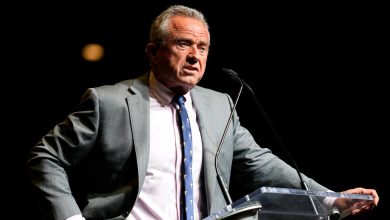‘I’m Matt.’ For Some Politicians, Addiction Battles Drive Policymaking.

Around a long wooden table at San Francisco City Hall, nine people battling drug addiction swapped news on a recent Friday.
One woman got a new job for a tax preparation firm and said she hoped staying busy would distract her from her alcohol cravings. A man said his mother was dying and he was glad he could be there for her, cleareyed. Another was effusive about a promising first date.
One middle-aged man, in a finely tailored blue suit with a pocket square, then took a turn.
“I’m Matt,” he said. “I work in the building.”
He was Matt Dorsey, a member of the San Francisco Board of Supervisors and a regular participant in the weekly recovery meetings held on the second floor. Mr. Dorsey, 59, has battled an addiction to crystal meth over a quarter of a century and has been sober for more than three years now.
In past generations, prominent leaders with addiction problems rarely opened up about their drug abuse and sometimes went to great lengths to hide their personal challenges. But Mr. Dorsey and other politicians have increasingly embraced frankness as an important part of the fight against the fentanyl and methamphetamine epidemics that have ravaged their cities.
Mr. Dorsey called the recovery movement “a sleeping giant” politically and said it has mobilized in San Francisco because of the drug crisis that has killed nearly 3,000 people in the city since 2020 — far more than Covid-19, homicides and car crashes combined. Others say that society has become more tolerant of people with personal struggles, which has made it easier to open up about drug addiction and mental health challenges.



